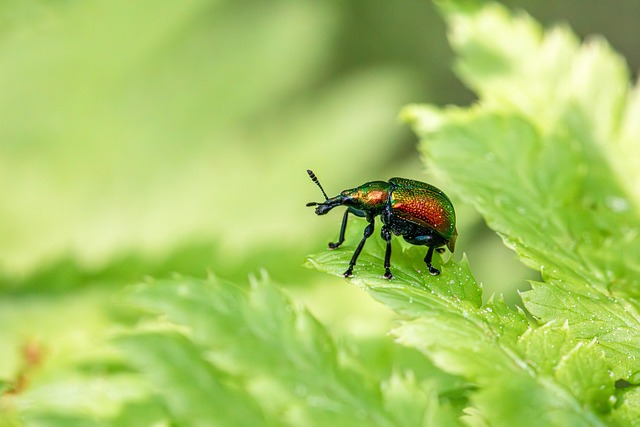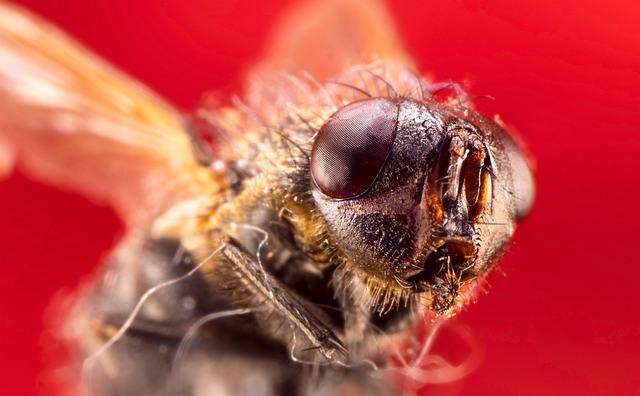Sheridan faces challenges with West Nile Virus (WNV) transmission due to its ecosystem and climate fostering mosquito breeding. To mitigate this, effective residential mosquito control is crucial. Strategies include removing standing water, utilizing professional treatments, and educating residents about proper waste disposal. Proactive control measures protect humans and animals from WNV and create a safer living environment. Combining professional interventions with community cooperation ensures swift containment and eradication of infestations, enhancing Sheridan's population safety.
In Sheridan, the presence of the West Nile Virus has underscored the critical need for effective pest management strategies. This article explores the multifaceted approach to addressing emergency infestation responses, with a particular focus on the role of residential mosquito control as a proactive measure against the virus. By delving into understanding the vector and implementing strategic interventions, residents can significantly reduce health risks associated with this mosquito-borne illness.
- Understanding West Nile Virus and its Impact in Sheridan
- The Role of Residential Mosquito Control in Prevention
- Emergency Infestation Response Strategies for Effective Pest Management
Understanding West Nile Virus and its Impact in Sheridan

In recent years, Sheridan has faced challenges with West Nile Virus (WNV), a potentially serious illness transmitted by mosquitoes. This infectious disease, primarily spread through mosquito bites, has sparked concern among residents, especially as mosquito populations rise during the warmer months. The impact of WNV can be severe, leading to neurological issues and even death in extreme cases.
Implementing effective residential mosquito control measures is crucial in Sheridan to prevent the spread of WNV. By adopting strategies such as removing standing water, where mosquitoes breed, and utilizing professional treatments to reduce mosquito populations, residents can significantly decrease the risk of exposure. Targeted pest control efforts, tailored to the local mosquito species and their habitats, are essential to protecting public health and ensuring a safer environment for Sheridan’s folks.
The Role of Residential Mosquito Control in Prevention

In the pursuit of a pest-free environment, residential mosquito control plays a pivotal role in preventing the transmission of diseases like West Nile Virus (WNV) in Sheridan. The presence of mosquitoes can pose significant health risks to both humans and animals, making proactive measures essential. By employing targeted and effective mosquito control strategies, residents can dramatically reduce the risk of WNV infection.
Sheridan’s unique ecosystem and climate create ideal breeding grounds for mosquitoes, emphasizing the need for consistent residential control efforts. This includes eliminating standing water—a primary breeding site—and implementing chemical or natural repellents. Additionally, community education on proper waste disposal and maintaining outdoor areas can significantly contribute to preventing mosquito-borne disease outbreaks, ensuring a safer and healthier living space for all Sheridan residents.
Emergency Infestation Response Strategies for Effective Pest Management

In the face of an infestation, a swift and strategic response is key for effective pest management. Emergency infestation response strategies focus on containing and eradicating pests to prevent further damage and health risks. For residential areas, such as Sheridan, one of the primary concerns is mosquito control to mitigate the risk of West Nile virus transmission. Prompt action involves identifying the type of infestation, evaluating its severity, and implementing tailored solutions. This may include targeted treatments, exclusion methods, or even full-scale eradication campaigns.
Residential communities in areas prone to mosquito-borne diseases like West Nile Virus must adopt proactive measures. Regular monitoring and maintenance are crucial to breaking the pest life cycle. Community cooperation is essential, with residents playing a vital role in eliminating standing water sources where mosquitoes breed. By combining professional intervention with community engagement, Sheridan can effectively manage infestations, ensuring a safer environment for its residents.
In conclusion, implementing effective residential mosquito control measures is key to preventing the spread of West Nile Virus in Sheridan. By employing emergency infestation response strategies and understanding the crucial role of local pest management, residents can significantly reduce the risk of this potentially serious disease. A proactive approach to mosquito control not only protects public health but also contributes to a safer, more vibrant community in Sheridan.
